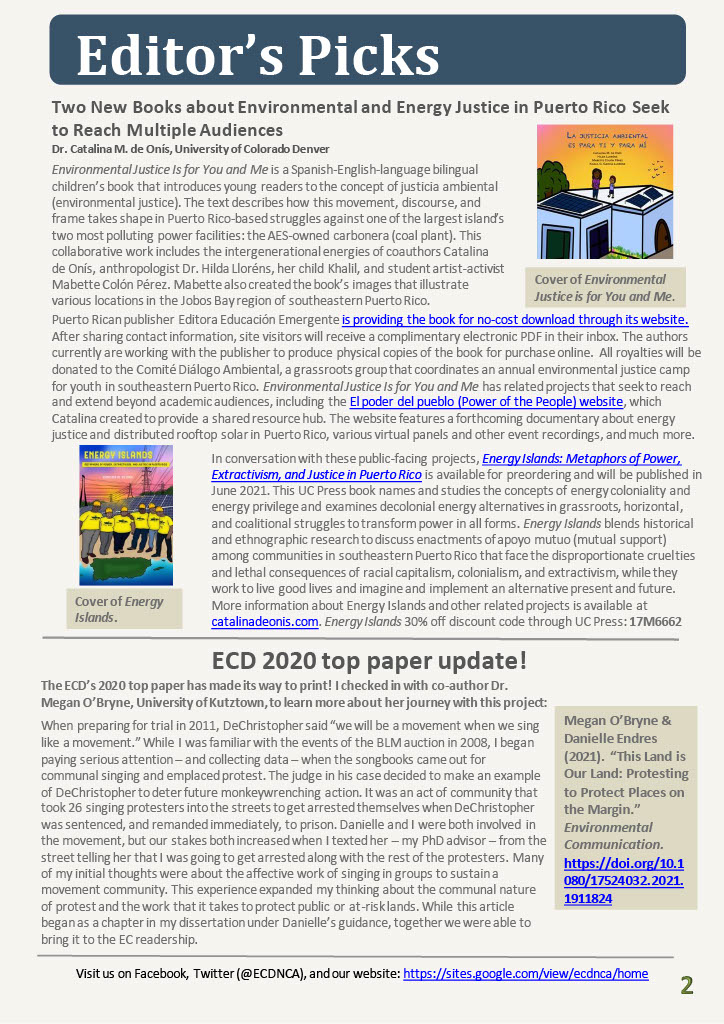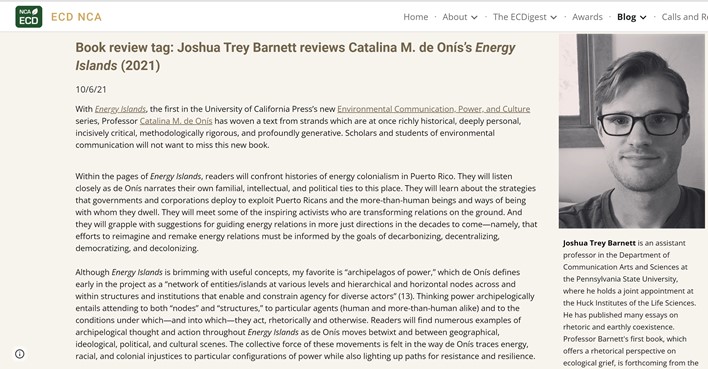
Energy Islands provides an urgent and nuanced portrait of collective action that resists racial capitalism, colonialism, and climate disruption. Weaving together historical and ethnographic research, Catalina M. de Onís challenges the master narratives of Puerto Rico as a tourist destination and site of “natural” disasters. She demonstrates how fossil-fuel economies are inextricably entwined with colonial practices and policies and how local community groups in Puerto Rico have struggled against energy coloniality and energy privilege to mobilize and transform power from the ground up. This work decenters continental contexts and deconstructs damaging hierarchies that devalue and exploit disenfranchised rural, coastal communities. Onís highlights and collaborates with individuals who refuse the cruel logics and discourses of empire and domination by imagining and implementing energy justice and other interconnected radical power transformations. Diving deeply into the concepts of energy, islands, and power, this book engages various metaphors for alternative world-making.
Winner of the James A. Winans-Herbert A. Wichelns Memorial Award for Distinguished Scholarship in Rhetoric and Public Address, the Rhetoric Society of America Book Award, the National Communication Association’s Critical and Cultural Studies Division’s Outstanding Book Award, and the Tarla Rai Peterson Book Award in Environmental Communication
Reviews
“This is a must-read. Catalina de Onís offers conceptual tools that will inspire energy and environmental justice actors for years to come while providing models for community-action scholarship. Energy is broadly construed in her analysis: the energy spent by humans creating ‘energy infrastructures,’ the emotional labor of those advocating for energy justice, the physical labor of producing energy, and the energy mobilized by coalitional politics. She provocatively reframes Puerto Rico’s place in worldwide energy-justice advocacy. The archipelago is simultaneously Global North and Global South, a heterogeneous place in terms of class and race. Onís centers the work of black-identified, women, feminist, and queer environmental organizing and is deeply invested in Latin American notions of horizontal solidarities.”
Alaí Reyes-Santos, author of Our Caribbean Kin: Race and Nation in the Neoliberal Antilles
“I absolutely love this book! Catalina de Onís delivers an expansive articulation of the politics of energy. She explores the electrifying power of rhetoric, imagination, language, and action that grassroots community leaders in Puerto Rico engender every day, outside of the confines of capitalism’s brutal value system. Drawing on a wide range of literatures and innovative research methods, this study advances scholarship at the intersections of energy, environmental, and climate justice and demonstrates how decolonial theory and action can be centered in debates and struggles against empire, ‘natural’ disasters, and racial capitalism. The author asks, ‘What gives you energy?’ My response? This book!”
David Naguib Pellow, author of What Is Critical Environmental Justice?
“This book addresses very timely topics related to energy and colonialism, especially in how they intersect with race, ethnicity, language, and gender. Onís’s personal experience and extensive fieldwork in investigating Energy Islands makes this work innovative and unique. It’s an important examination in how activist communities are working to address these subjects.”
Stacey K. Sowards, Mark L. Knapp Professorship at the University of Texas at Austin


